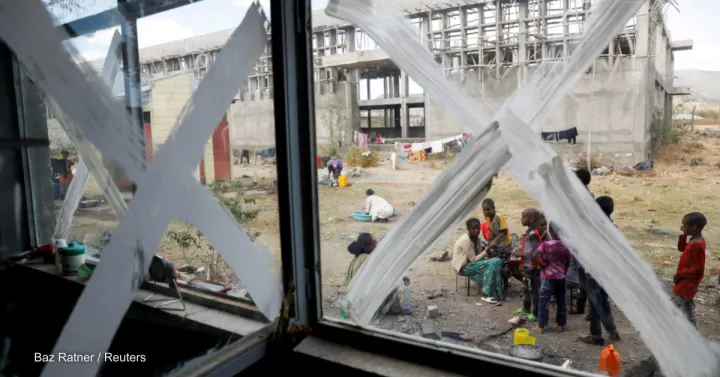04 – 14 – 2022
A spokesperson for the European Commission told Devex, however, that the move is “premature” and potentially “counterproductive” to the nascent peace process. Analysts following Ethiopia also expressed concern that the grant would reward the government before it opens up full humanitarian access to the conflict-hit region of Tigray.
The Ethiopian government is accused of mass killings and gender-based violence, or GBV, among a range of allegations made by human rights lawyers since fighting began in the northern Tigray region in late 2020.
The World Bank said the funds would come from the International Development Association fund for the world’s lowest-income countries and highlighted that some of the money was being set aside to “provide GBV survivors with improved access to the services and comprehensive care needed to recover from the impacts of the violence they experienced.”
There are plans for potentially more World Bank financing for Ethiopia this year, according to a person familiar with the issue.
The European Commission, which is not a shareholder of the bank, tried to postpone the move, according to sources familiar with the matter, arguing that more time was needed to assess the situation in the country.
“To us, peace is still too fragile to start financing the reconstruction in Northern Ethiopia,” the commission spokesperson said in an email to Devex on Wednesday. “In this regard, the World Bank’s $300 million grant for reconstruction decided at its Board meeting on April 12 is premature and could be counterproductive in the context of the current political stalemate.”
“We are of the opinion that approving this grant will send the wrong signal at a time [when] more efforts are needed to ensure suitable humanitarian access to all Ethiopian and long-lasting peace,” the spokesperson added, stressing that the commission is demanding full humanitarian access to conflict areas.
The EU executive is withholding budget support to Ethiopia’s government, led by Prime Minister Abiy Ahmed, until a number of conditions are met, including unfettered humanitarian access in Tigray.
The hold on support comes as the government faces a severe funding shortfall, with analysts speculating that this has put pressure on Abiy to engage in a peace process and let in some aid supplies. Analysts have questioned the sincerity of the government on the peace process.
Differences between European countries over how to respond to the conflict prompted the bloc’s foreign affairs chief, Josep Borrell, to say in December that the EU’s inability to “react properly” to human rights violations in Ethiopia was one of his biggest frustrations of 2021.
French and German government spokespeople did not respond to requests for comment on the World Bank approval. U.S. officials did not respond to requests for comment on the decision.
Earlier this month, the U.S. Agency for International Development announced that it would give $114 million to Ethiopia, Kenya, and Somalia to help people struggling with drought in the Horn of Africa region.
David Satterfield, U.S. special envoy for the Horn of Africa, is currently visiting Ethiopia, including for meetings with government officials, according to the U.S. State Department, which stressed that he will focus on issues related to the peace process in Ethiopia and humanitarian access.
